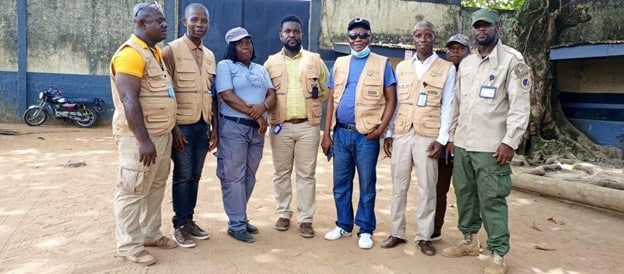Promoting Justice for Detainees in Liberia
By John Kamma, Global Fellow from Liberia
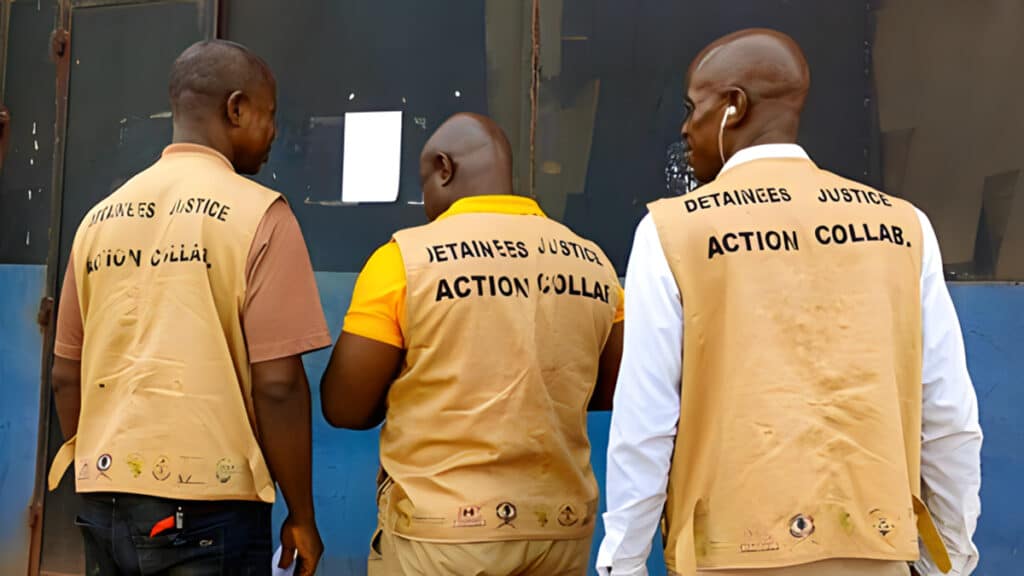
It is with great joy that I announce that I have won a €10,000 Euro grant from Catalyst 2030 to pilot a project focused on detainees in Liberia. I have already secured a permit from the Ministry of Justice to visit prisons and start working with detainees to review their cases. Together, with my local learning partners and the advocates, we will identify detainees whose rights have been violated and provide legal support to facilitate access to those rights.
“Today, we visited the Monrovia Central Prison and interacted with Prison authorities who were very pleased about our intervention to bring justice to the life of pre-trial detainees. This is a step toward our data collection process that will be used to advance evidence-based advocacy, demanding due process of law for pre-trial detainees in a competent court of jurisdiction.”—John Kamma
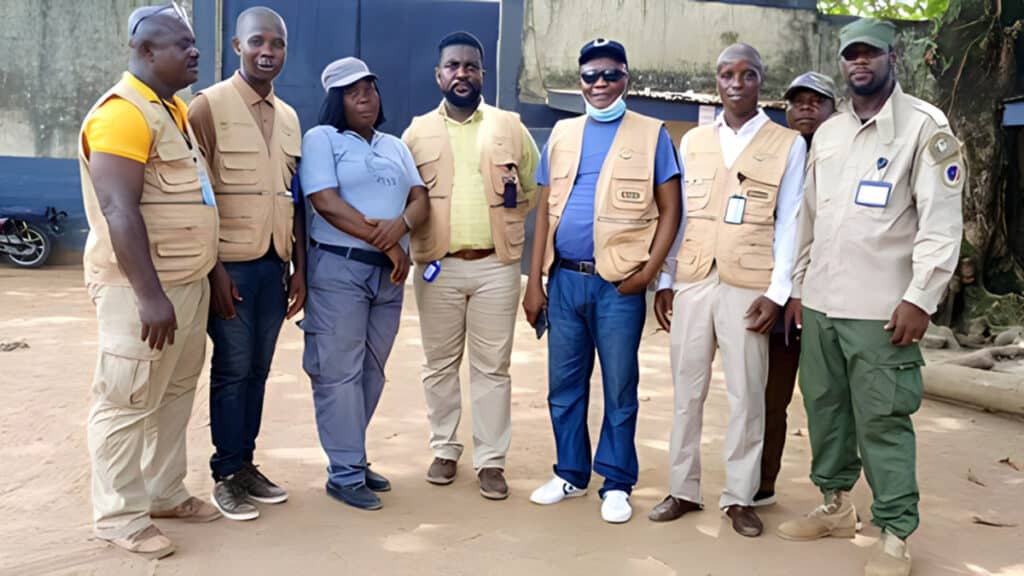
The project, Detainees Justice Action (DJA), seeks to; promote access to justice among detainees, support their integration back into the community, and provide sustained mental health support. We just started in Monrovia but the permit from the Ministry of Justice allows our project to scale across the country. The three-month pilot phase is now focusing on the identification of detainees whose legal rights were not met. Afterwards, we hope to start addressing the issues in court with support from the advocates.
Between June and December 2022, I was engaged in an extensive training program led by the African Civic Engagement Academy (ACEA). During that period, I had an opportunity to learn with over 2,000 participants coming from across the African continent. I applied for this opportunity because I understand that our work in the community requires constant learning, research, and networking. Throughout the program, I was exposed to knowledge about basic principles of civic engagement, inclusion, media management, non-profit management, and program design.
The whole program was conducted online, featuring multimedia content designed to expose us to different theories. I also learned a lot about practical applications from other participants. We exchanged experiences based on our unique actions in our respective communities. I was particularly impressed with the lessons surrounding the need for partnerships and collaborations. We learned that extending partnerships with the government and other civil Society Organizations can increase our chances of success in tackling the issues we face.
“Ensuring that the government does not see you as an obstacle is key to improving relationships, obtaining support, and achieving collective goals. Sometimes the government already possesses important information that is necessary for our work to be successful.” — John Kamma
Last year I was training at the African Civic Engagement Academy and whilst there I submitted a Civic Engagement Action plan detailing the work of Detainees Justice Action. This led to my recent invitation to attend the 2023 ACEA Summit which takes place tentatively on March 17-19 in Nairobi. I am so glad for this opportunity and I’m looking forward to it.
“The reviewers at ACEA selected me for the Summit because they were impressed with the quality of my Civic Engagement Action Plan and with my participation in the ACEA training last year.” —John Kamma
LEGAL Celebrates 10 Years of Advancing Human Rights in Liberia
By Jennifer Kuwa Henshaw, Global Fellow from Liberia
We recently celebrated our 10-year anniversary which marked the progress we have made in advancing human rights for LGBT individuals in Liberia. We also used the occasion to honor the contribution of our supporters and to share our hopes for the future. The anniversary celebration took place on 26th January 2022 and brought together local and international stakeholders. Reflecting on the occasion, one of our team members remarked:
“This was our chance to step back and look at the past and present activities. To learn from where we started, where we are, and where we are going.”
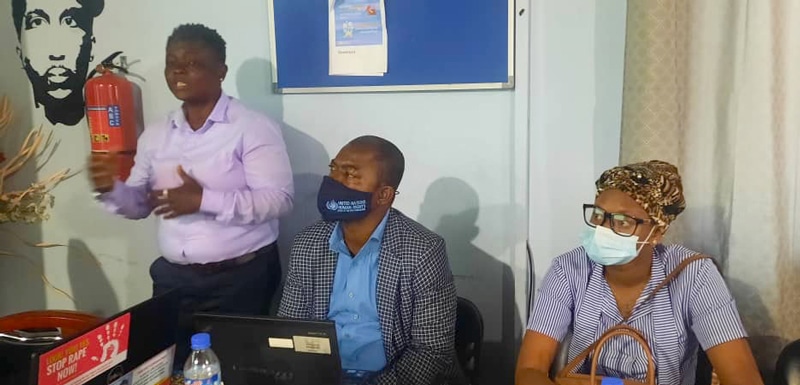
We started the Lesbian and Gay Association of Liberia (LEGAL) in 2012 to advocate for the rights of marginalized groups through awareness raising activities while providing direct support to those most-affected. For ten years, we have stood firmly as the voice of sexual minority groups in Liberia, speaking against discrimination, injustices, stigmatization, violence and abuse. We also work with stakeholders to help provide economic empowerment, health services, access to justice and education, all in addition to promoting the fundamental principles of human rights.
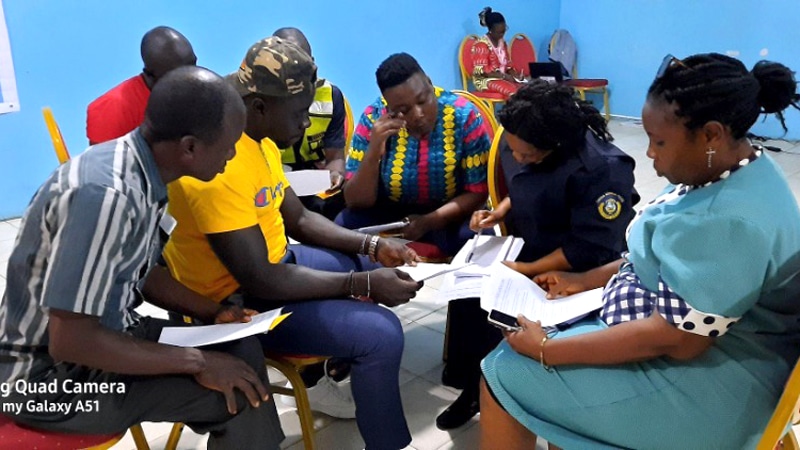
During the anniversary, we shared the following accomplishments with guests and stakeholders who joined us:
- Established the Protection Focal Persons at the Nine Police zones in Monrovia and Nimba county
- Strengthened mechanisms for Institutional capacity building
- Partnered with CSOs, Government line Ministries, NGOs, Partners, Foreign Missions, the Religious and Traditional Communities
- Strengthened relationships with Donors who continued to support our work
- Assigned Peers and Outreach Officers at the Community level who continue to document cases of abuse or violence committed against LBT women, girls, sex workers, drugs users, people living with complicated health issues and people living with disabilities
- Improved Community’s awareness on human rights advocacy and the referral path way in terms of access to health and justice
- Trained 1,183 people of whom 75% are community members. Some of the trainees are still actively involved to date
- Hate cases recorded are 93; 52 from Montserrado, Margibi 7, River Cess 21, Lofa 1, Grand Gedeh 1, Bong 1 . Cases ranging from rape, murder, GBV, SGBV, family neglect, child neglect, child trafficking, stigma and discrimination, kidnaping, sex trade, FGM, burglary and natural disaster
- Project locations have increased and we are now operating in 16 locations beyond Monrovia
The event was also an opportunity for us to thank our partners for continuing to support our mission. We issued certificates of appreciation to honor their contributions.
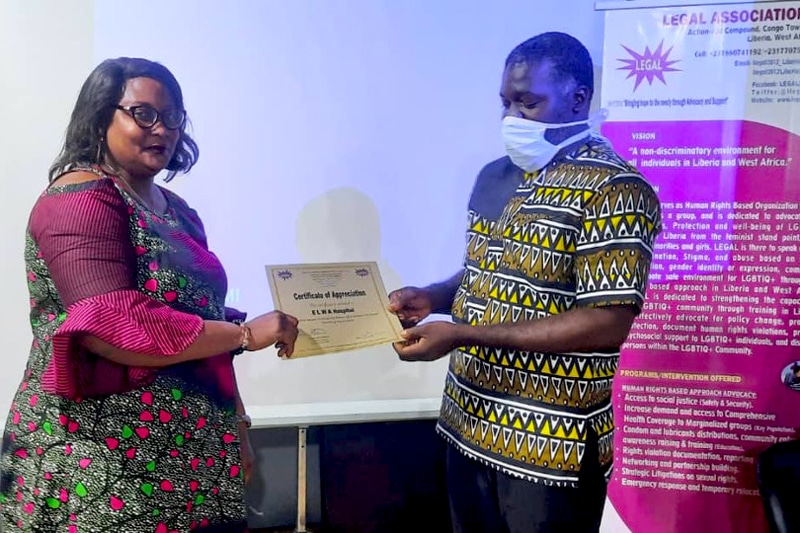
Despite having made huge progress since we started, LEGAL continues to face limitations that make our advocacy work less effective in addressing the magnitude of issues faced by marginalized groups. Some of the challenges we still face include limited funding capacity, limited partnership opportunities with the religious figures, existing stigma and limiting cultural beliefs, lack of access to basic health care services, hate related crimes against members of the LGBTIQs community, and the existing national law which discriminate LGBTIQs (the Penal Code Section 14.73,74 etc).
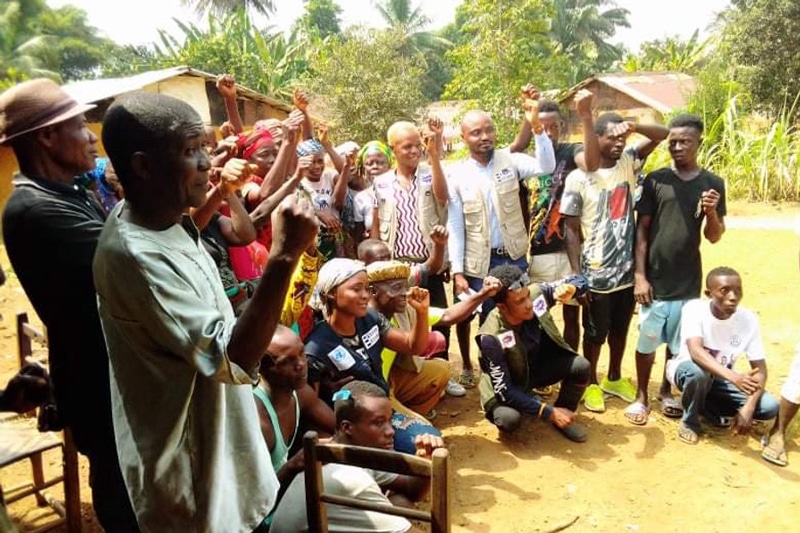
As we focus attention to the future, LEGAL plans to enhance the protection and access to basic health services, and human rights services for sexual minorities women, girls and other vulnerable groups. We also hope to increase advocacy and sexual reproductive education at community level. Our plan is to engage the following counties: Montserrado, Gbapolu, River Cess, Grand Bassa, Grand Gedeh, Mary Land, Grand Kru, Sinoe, Gbapoplu, Bomi, Cape Mount, Lofa, Nimba, Bong, and Margibi. This hope informs the core of our strategic plan 2022/2025 where we hope to continue addressing discrimination, violence, abuse, hate crimes, and stigmatization through increased community participation, awareness raising, empowermeent activities and human rights protection.
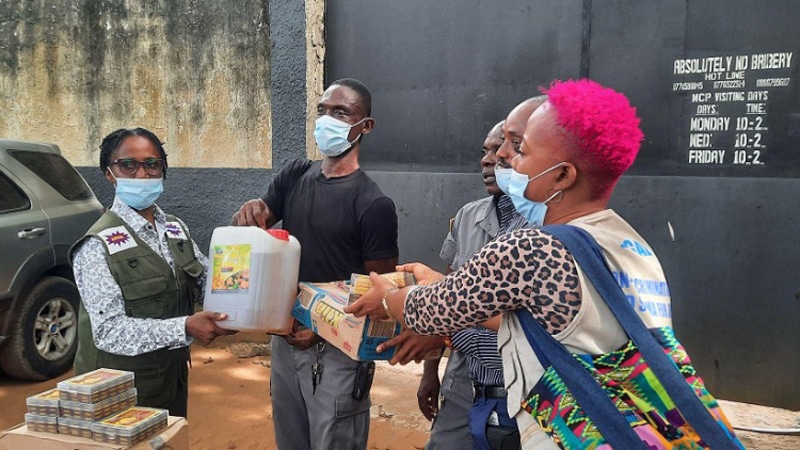
We also conducted Know Your Status Campaign on HIV and AIDS prevention, referral, treatment and stay on treatment campaign and awareness.
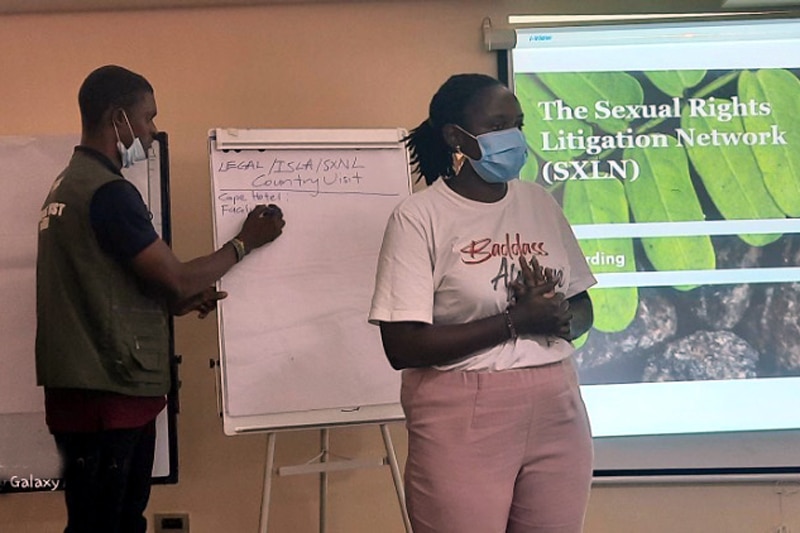
We also conducted training for Law Enforcement Officers for them to understand the rights of marginalized groups through the Human Right based approach through Solidarity Sisters (SoSNoL) who are the protection organization for the Marginalized groups in Liberia.
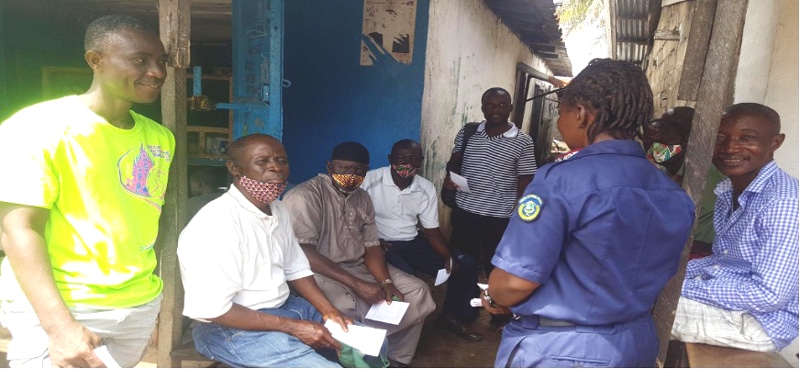
We also visited the Monrovia Prison Center and distributed Food and Non - Food Items for the inmates at the Prison Center.
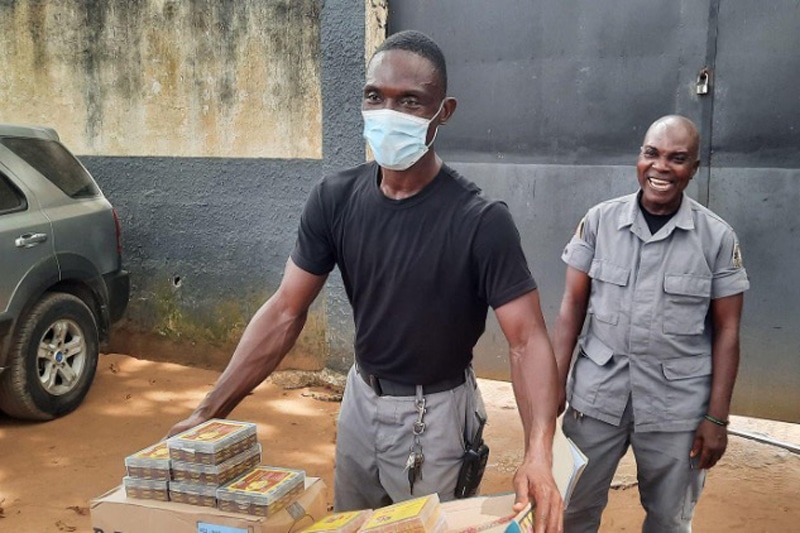
We also reach out to survivals that was brutalized by an ex Military guy that said that he has a vision for God saying that he should kill all Gay men in Liberia. We also conducted a one day meeting with lawyers to have a network that they will be representing LGBTIQ members in Liberia whenever they have cases at court level with the support from ISLA.
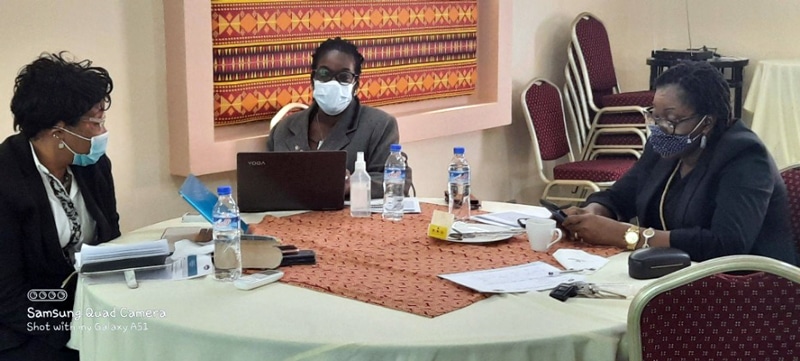
For LEGAL To be successful in implementing such a strategic plan, we are going to need support from all our stakeholders. We are going to require USD 500,000 to implement the project for the next 3 years. Additionally, we need help in developing partnerships with religious and traditional leaders, support to repeal the law that discriminates against members of the LGBTIQs community, support to conduct a mapping study of the LGBTIQs, sex workers, drugs users in 15 counties to understand their aspirations and personnel capacity building support.
We believe that by working together we can safeguard the rights of minority groups in Liberia and beyond. It starts with Me and You!
Cholera Epidemic in Haiti is Clearly a Human Rights Issue

The director of the Health and Human Rights Clinic at Indiana University's McKinney School of Law, makes a sharp criticism of both the U.S. and U.N policy in Haiti. In this recent piece at the Nation, attorney Fran Quigley also reminds us that the future of human rights is threatened by the U.N.'s "craven abdication of justice in Haiti" because in doing so, the U.N. has lost its moral right to speak out about other human rights or democracy issues in other parts of the world.
Quigley also makes it clear that although the earthquake of 2010 was a natural disaster, the cholera epidemic was completely man-made and the responses made in the aftermath have been shaped by long-held political biases against Haiti and its people. From the first Bush administration that blocked funds that would have updated the water system to the current Obama administration that has sided with the U.N. position that it be immune from legal accountability for bringing the epidemic to Haiti, Quigley runs through the list of how the response has exasperated the issue and further victimized an already vulnerable nation.
[quote]While the earthquake originated as a natural disaster, albeit one made worse by generations of international exploitation, the cholera epidemic was a fully human-made phenomenon. It demonstrates that the world's most powerful nation – the United States – and its most respected international organization – the United Nations – have no intention of treating the Haitian people as fully human beings, deserving of even the most basic of rights."[/quote]
- Fran Quigley, human rights attorney
Read the full piece at the Nation here. To find out how to become more involved, see this related issues page and our community-building efforts in Haiti here.
Above: People walk across an overpass as raw sewage flows beneath in Port-au-Prince, Haiti, September 2012.
Photo Credit: Rueters / Swoan Parker
